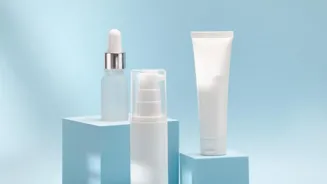Sensitive Skin Alert! Top 10 Beauty Ingredients to Avoid for Healthy, Happy Skin! Dive in for savvy skincare tips!
Namaste, and welcome, readers! Feeling that itchy, red, or burning sensation after trying
a new face cream? Chances are, your sensitive skin is not happy with what you’re putting on it. In India, with our varying climates and pollution levels, many of us struggle with sensitive skin.

Finding the right products can feel like navigating a crowded local train – challenging, to say the least. But don't worry, we're here to help! We’ve compiled a list of the top 10 beauty ingredients that are known to irritate sensitive skin. Knowing what to avoid is half the battle won, beta!
Let's dive in and make your skincare journey a much smoother one. Remember, beautiful skin starts with healthy skin, and healthy skin starts with informed choices. So, read on and become a savvy skincare shopper!
Fragrance (Synthetic and Natural): The Sneaky Irritant
Fragrance, both synthetic and surprisingly, even natural ones (like essential oils in high concentrations), are a major culprit for skin irritation. That pleasing smell you love? It’s often a blend of dozens, even hundreds, of chemicals that can trigger allergic reactions, redness, and itching.
Synthetic fragrances are created in a lab, and natural fragrances are derived from plants or flowers. Both types can be unstable and react with the air, light, and even your skin, creating new irritants. Look for products labeled "fragrance-free" or "unscented.
" Be warned, though, "unscented" products might still contain masking fragrances to cover up the smell of the other ingredients, so "fragrance-free" is the better option. Always check the ingredient list carefully; fragrance can be listed as "parfum," "aroma," or simply "fragrance."
Alcohol (Especially Denatured Alcohol): Drying and Damaging
While some alcohols, like fatty alcohols (cetyl, stearyl alcohol), are beneficial for skin and act as emollients, others, especially denatured alcohol, can be incredibly drying and irritating. Denatured alcohol (alcohol denat.
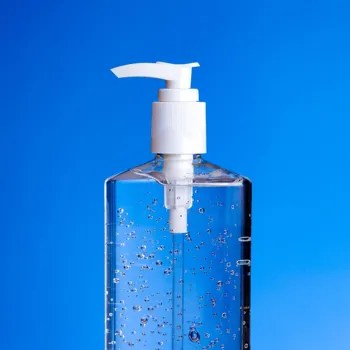
) is often used in toners and gels for its quick-drying effect, but it strips your skin of its natural oils, leading to dryness, irritation, and even increased oil production as your skin tries to compensate.
This can disrupt your skin's natural barrier, making it more vulnerable to environmental damage and sensitivity. If you see alcohol denat. high up on the ingredient list, it's best to avoid that product, especially if you have dry or sensitive skin.
Opt for alcohol-free formulations or products that use gentle alternatives like witch hazel (alcohol-free) in very small amounts.
Chemical Sunscreens (Oxybenzone, Octinoxate): Irritating Filters
Sunscreens are essential, especially in sunny India, but some chemical sunscreen filters can be irritating for sensitive skin. Ingredients like oxybenzone and octinoxate work by absorbing UV rays, but this process can sometimes trigger allergic reactions and skin irritation.

Instead, opt for mineral sunscreens containing zinc oxide and titanium dioxide. These minerals physically block UV rays and are generally much gentler on sensitive skin. Also, look for "broad spectrum" protection, which means the sunscreen protects against both UVA and UVB rays.
Don't forget to apply sunscreen liberally and reapply every two hours, especially if you're swimming or sweating. Protecting your skin from the sun is crucial for preventing premature aging and skin cancer, so finding a gentle sunscreen is a must.
Exfoliating Acids (AHAs, BHAs in High Concentrations): Proceed with Caution
Alpha hydroxy acids (AHAs) like glycolic acid and lactic acid, and beta hydroxy acids (BHAs) like salicylic acid, are excellent exfoliants, but they can be too harsh for sensitive skin, especially in high concentrations.
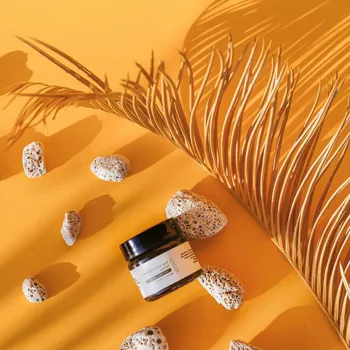
While they help to slough off dead skin cells and reveal brighter, smoother skin, they can also cause redness, irritation, and dryness if overused or used in formulations that are too strong.
If you want to use AHAs or BHAs, start with a very low concentration and use them sparingly, maybe once or twice a week. Look for products specifically formulated for sensitive skin, or consider gentler alternatives like enzymatic exfoliants (papain, bromelain) which are derived from fruits.
Always do a patch test before applying any exfoliating acid to your entire face.
Retinoids (Retinol, Tretinoin): Powerful, But Potentially Irritating
Retinoids, derivatives of vitamin A, are powerful ingredients for anti-aging and acne treatment. However, they can also be very irritating, especially for sensitive skin. Retinoids increase skin cell turnover, which can lead to dryness, redness, peeling, and irritation, known as "retinoid shock.
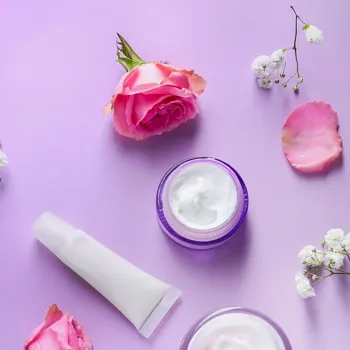
" If you want to incorporate retinoids into your routine, start with a very low concentration (0.01% retinol) and use it only once or twice a week. Buffer the retinoid by applying a moisturizer before and after application.
You can also look for milder alternatives like bakuchiol, a plant-derived ingredient that offers similar benefits to retinol without the same level of irritation. Patience is key when it comes to retinoids; it takes time for your skin to adjust.
Sodium Lauryl Sulfate (SLS) and Sodium Laureth Sulfate (SLES): Foaming Agents That Can Strip Skin
SLS and SLES are common foaming agents found in cleansers, shampoos, and body washes. They create that bubbly lather we associate with cleanliness, but they can also be very harsh and stripping on the skin.
These ingredients can disrupt your skin's natural barrier, leading to dryness, irritation, and even breakouts. Look for sulfate-free cleansers that use gentler surfactants like cocamidopropyl betaine or decyl glucoside.
These alternatives are less likely to strip your skin of its natural oils while still effectively cleansing. Read labels carefully and opt for products that are specifically formulated for sensitive skin and free of harsh sulfates.
Essential Oils (Undiluted): Highly Concentrated Irritants
While essential oils have gained popularity in skincare for their natural benefits, they can be highly irritating for sensitive skin, especially when used undiluted.
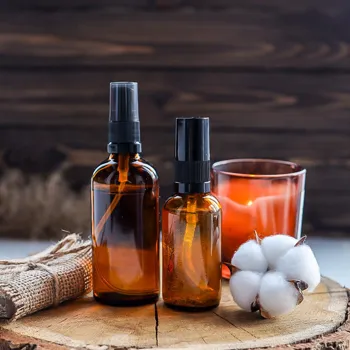
Essential oils are highly concentrated plant extracts, and even natural ingredients can cause allergic reactions or irritation in some people. Common culprits include lavender, tea tree, and peppermint oil.
If you want to use essential oils, ensure they are properly diluted in a carrier oil, such as jojoba or almond oil, and always do a patch test before applying them to your entire face.
Look for products that contain essential oils in very low concentrations or avoid them altogether if you have highly sensitive skin.
Dyes and Artificial Colors: Unnecessary Irritants
Dyes and artificial colors are often added to beauty products to make them look more appealing, but they serve no real purpose for the skin and can be a source of irritation. These synthetic colorants can trigger allergic reactions and sensitivities, especially in individuals with sensitive skin.

Look for products that are free of dyes and artificial colors. These products are often labeled as "dye-free" or "fragrance-free and dye-free." Check the ingredient list for common culprits like FD&C Blue No. 1, FD&C Red No. 40, and D&C Yellow No. 10.
Avoiding these unnecessary additives can help to minimize the risk of irritation and keep your skin calm and happy.
Preservatives (Parabens, Formaldehyde-Releasers): Necessary Evil, Choose Wisely
Preservatives are necessary in skincare products to prevent the growth of bacteria and mold, but some preservatives can be irritating for sensitive skin.
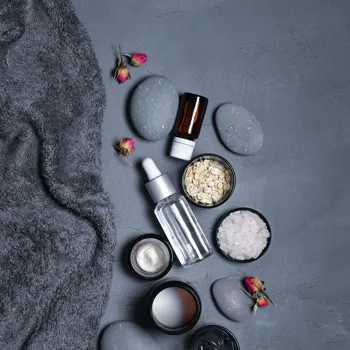
Parabens, formaldehyde-releasers (like DMDM hydantoin and quaternium-15), and methylisothiazolinone (MIT) are common preservatives that have been linked to allergic reactions and skin irritation.
While preservatives are essential to keep your products safe, you can choose products that use gentler alternatives like phenoxyethanol or sodium benzoate. Look for paraben-free and formaldehyde-free formulations.
When it comes to preservatives, it's about finding a balance between safety and tolerability.
Harsh Soaps: High pH and Stripping
Traditional bar soaps often have a high pH level, which can disrupt the skin's natural pH balance and lead to dryness and irritation. Harsh soaps strip away the skin's natural oils, leaving it feeling tight, dry, and uncomfortable.
Opt for gentle, pH-balanced cleansers that are specifically formulated for sensitive skin. Look for ingredients like glycerin, ceramides, and hyaluronic acid, which help to hydrate and protect the skin's barrier. Avoid soaps that contain harsh detergents and fragrances.
A gentle cleanser is a foundation for healthy, happy skin.
So there you have it – the top 10 beauty ingredients to avoid if you have sensitive skin! Remember, everyone's skin is different, so what irritates one person might not irritate another.
Pay attention to how your skin reacts to different products and ingredients, and always do a patch test before trying something new. With a little knowledge and careful selection, you can find skincare products that work for you and keep your sensitive skin calm, happy, and glowing!
Happy shopping, and take care of your skin!
AI Generated Content. Glance/InMobi shall have no liability for the content